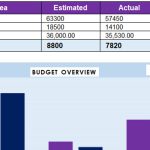DAOs, or Decentralized Autonomous Organizations, are shaking up traditional governance structures in exciting and innovative ways. This article explores how DAOs (Decentralized Autonomous Organizations) are changing governance, offering a glimpse into the future of decision-making and collective action. From redefining community engagement to fostering transparency and empowering individuals, DAOs represent a paradigm shift in how we organize and operate.
Reimagining Decision-Making with Decentralization
The Power of Collective Intelligence
Traditional governance often relies on centralized authorities, leading to potential bottlenecks and limited representation. DAOs flip this script by distributing power among its members. Decisions are made collectively, leveraging the wisdom of the crowd and ensuring everyone has a voice. This fosters a sense of shared ownership and encourages active participation.
Imagine a community deciding how to allocate resources for a local park. Instead of relying on a small council, a DAO could enable every resident to vote on proposals, ensuring the outcome reflects the collective will.
From Hierarchy to Horizontal Structures
DAOs (Decentralized Autonomous Organizations) break free from hierarchical models, promoting a more horizontal and inclusive structure. This eliminates single points of failure and fosters a more resilient system. Members can contribute their expertise and skills directly, without navigating bureaucratic layers.
Think of a company operating as a DAO. Instead of a top-down management structure, employees could propose and vote on projects, fostering innovation and agility.
Automating Governance Processes with Smart Contracts
At the heart of every DAO lies a set of smart contracts – self-executing agreements coded on a blockchain. These contracts automate governance processes, ensuring transparency and immutability. From voting procedures to fund allocation, everything is recorded on the blockchain, making it auditable and tamper-proof. This fosters trust and accountability among members.
This transparency reduces the risk of corruption and manipulation, ensuring the DAO operates according to its pre-defined rules. This is a key aspect of how DAOs (Decentralized Autonomous Organizations) are changing governance.
Fostering Transparency and Accountability
Open Source Governance: A New Era of Transparency
DAOs embrace transparency by design. All transactions, proposals, and voting records are publicly available on the blockchain. This radical transparency fosters accountability and builds trust among members. Anyone can scrutinize the DAO’s operations, ensuring fairness and ethical conduct.
This open-source approach to governance is a game-changer, empowering members with information and promoting a sense of collective ownership.
Immutable Records: Ensuring Integrity and Trust
The immutability of blockchain technology guarantees the integrity of DAO records. Once a transaction is recorded, it cannot be altered or deleted. This provides a permanent and auditable history of the DAO’s activities, further enhancing transparency and trust.
This feature is crucial in preventing fraud and manipulation, providing a secure and reliable platform for governance. How DAOs (Decentralized Autonomous Organizations) are changing governance is directly linked to this enhanced level of security.
Community Driven Auditing and Oversight
DAOs empower communities to actively participate in auditing and oversight. Members can scrutinize the DAO’s activities, identify potential issues, and propose solutions. This fosters a culture of shared responsibility and strengthens the integrity of the organization.
This level of community involvement creates a robust system of checks and balances, ensuring the DAO operates effectively and ethically.
Empowering Individuals and Communities
Giving Voice to the Voiceless
DAOs have the potential to empower marginalized communities and give voice to the voiceless. By providing a decentralized platform for participation, DAOs can break down barriers to entry and enable anyone to contribute to decision-making processes.
This can lead to more inclusive and equitable outcomes, reflecting the diverse needs and perspectives of all members.
Unlocking New Forms of Collaboration
DAOs facilitate new forms of collaboration by connecting individuals with shared interests and goals. This enables people to pool their resources and expertise to achieve common objectives, regardless of their geographical location or background.
This fosters a sense of global community and opens up exciting possibilities for collective action. How DAOs (Decentralized Autonomous Organizations) are changing governance is inextricably linked to this new potential for collaboration.
From Passive Consumers to Active Participants
DAOs transform individuals from passive consumers to active participants in governance. Members have a direct say in how the organization operates, fostering a sense of ownership and empowering them to shape their collective future. This shift from passive to active participation is a key aspect of how DAOs (Decentralized Autonomous Organizations) are changing governance.
This active participation can lead to more engaged and informed citizens, fostering a stronger sense of civic responsibility.
Comparing Traditional Governance and DAO Governance
| Feature | Traditional Governance | DAO Governance |
|---|---|---|
| Decision-Making | Centralized (individuals or small groups) | Decentralized (collective voting by members) |
| Transparency | Often opaque | Highly transparent (blockchain records) |
| Accountability | Limited, potential for corruption | High, enforced by smart contracts |
| Structure | Hierarchical | Horizontal, distributed |
| Participation | Limited to select individuals | Open to all members |
| Efficiency | Can be slow and bureaucratic | Potentially faster and more agile |
| Security | Vulnerable to manipulation and fraud | Enhanced by blockchain technology |
| Adaptability | Slow to adapt to changing circumstances | Potentially more adaptable and responsive |
Conclusion: The Future of Governance is Decentralized
DAOs (Decentralized Autonomous Organizations) represent a radical departure from traditional governance models, offering a glimpse into a future where decision-making is more democratic, transparent, and efficient. While challenges remain, the potential of DAOs to transform how we govern is undeniable. How DAOs are changing governance is a topic that warrants further exploration, and we encourage you to check out our other articles on blockchain technology, the future of work, and the evolving landscape of digital communities.
FAQ about How DAOs Are Changing Governance
What is a DAO?
A DAO is like an internet-based company with no central leadership. Decisions are made by voting, and the rules are written in computer code (smart contracts) on a blockchain.
How do DAOs change governance?
DAOs make governance more transparent, secure, and democratic. Everyone can see the rules and how decisions are made, votes are recorded immutably on the blockchain, and members have a direct say in the organization’s direction.
Who can participate in a DAO?
Generally, anyone can participate in a DAO by owning its governance token. These tokens act like shares in a traditional company and give holders voting rights.
How do DAOs make decisions?
DAOs make decisions through proposals and voting. Members can create proposals for changes, and then token holders vote on whether to accept or reject them.
Are DAOs legal?
The legal status of DAOs is still evolving and varies from place to place. Some jurisdictions are creating specific legal frameworks for DAOs, while others are still figuring it out.
What are the benefits of using DAOs?
Benefits include increased transparency, reduced bureaucracy, greater member engagement, and automation of many administrative tasks.
What are the risks associated with DAOs?
Risks include security vulnerabilities in smart contracts, potential for governance attacks (like manipulation of voting), and the legal uncertainty surrounding their operation.
How are DAOs funded?
DAOs are typically funded through the sale of governance tokens or through contributions from members.
Can a DAO be shut down?
Shutting down a DAO depends on its specific rules. Some DAOs have mechanisms built into their code that allow for dissolution under certain conditions, while others are designed to be perpetual.
What is the future of DAOs?
DAOs have the potential to revolutionize how organizations are governed, from small community groups to large corporations. As the technology matures and legal frameworks become clearer, we can expect to see even wider adoption of DAOs.


